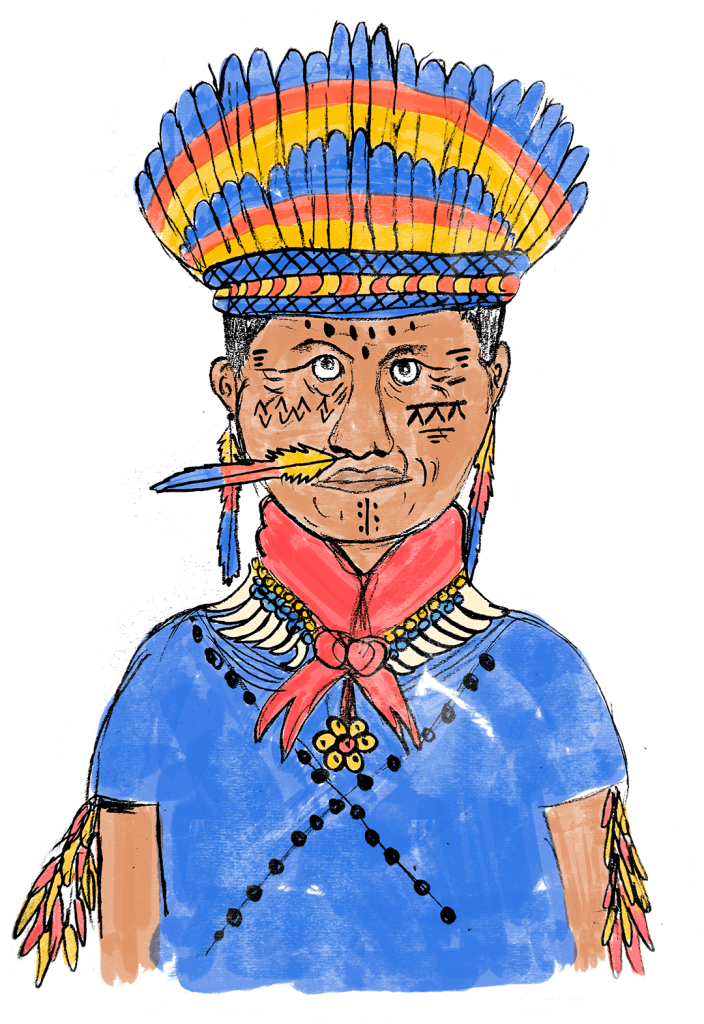
Four Indigenous Leaders from Ecuador’s Amazon On Solidarity
For this year’s Indigenous Peoples’ Day, we asked four Indigenous leaders we work with to speak with us about the importance of global solidarity with their nations and movements.
In the Amazon, the threats to Indigenous Peoples’ lives and security are multiplying. Right now, in Ecuador alone, the government is dismantling the rule of law and rolling back rights across all sectors of society. A series of new dangerous and unconstitutional laws and orders are being pushed forward, like the protected areas law, which threatens to hand over Indigenous territories to private interests, and Executive Order 60, which merged the Environmental Ministry with the Ministry of Energy and Mines. This is all, in part, to set the stage for the unchecked expansion of extractive industries like mining and oil, including the Southeastern Oil Round, which threatens 8.7 million acres of Indigenous territories.
And it is all happening while the climate crisis continues to accelerate the demise of Indigenous cultures, forests, and countless species of plants and animals, and while governments worldwide are turning their backs on commitments to Indigenous rights as well as the environment. “Take a look at what’s happening right now,” says Alex Lucitante, an A’i Cofán leader we spoke with. “They’re going to come with greater force trying to trample us and erase our rights.”
Throughout over ten years of work together at Amazon Frontlines and Ceibo Alliance, we have seen that solidarity, across cultures, nations, and the world, can have a huge impact on strengthening Indigenous movements and protecting vital life-sustaining ecosystems like the Amazon. Solidarity can help us chart a new path forward rather than accepting the future that Alex and all those on the frontlines currently see ahead.
Here, four Indigenous leaders—Nemonte Nenquimo, Alex Lucitante, Justino Piaguaje, and Alicia Salazar—tell us more about the importance of solidarity.
Spread the Message
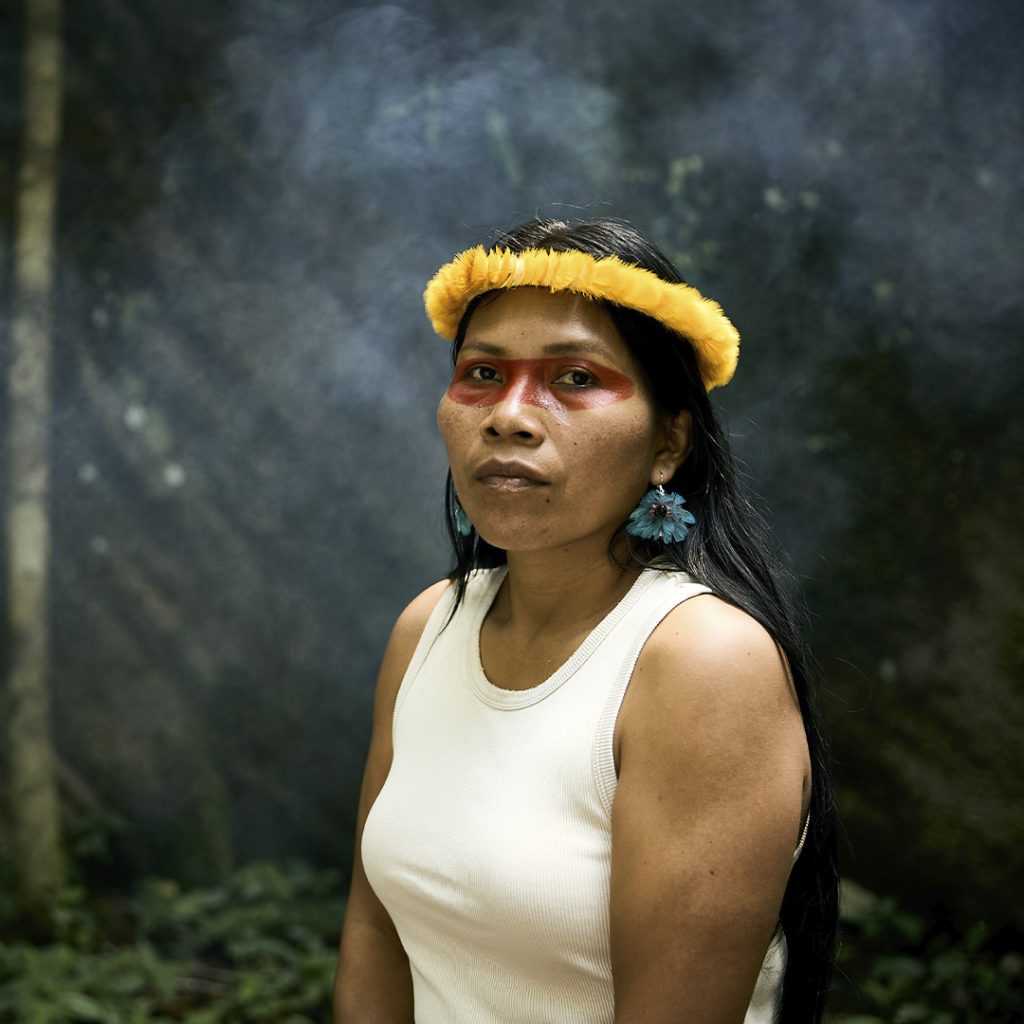
“This is the moment to unite — to fight back against the ongoing assault on the rights of Indigenous Peoples and nature.”
Nemonte Nenquimo, Waorani Leader and co-founder of Amazon Frontlines and Ceibo Alliance
Since I was a child, I have witnessed more than 50 years of oil exploitation. When the companies arrived in the villages of the Amazon, they said they would solve poverty, education, health, and infrastructure issues, and promote good living. But even now in the Amazon, where they continue to extract resources, there is more poverty, more disease, more pollution, no health centers, no medicine, no quality education, and no good roads.
It is a disaster. What they call “development” is really destroying and polluting the forest, and killing Indigenous Peoples.
We must spread the message of what is happening; that is the solidarity that the world can offer. Today, we are living in a crisis; climate change affects the whole world. If the Amazon is destroyed, it affects us Indigenous Peoples first and foremost, and secondly, the whole world, because we all depend on air, oxygen, water, and land.
We Are Not The Only Beings In The World
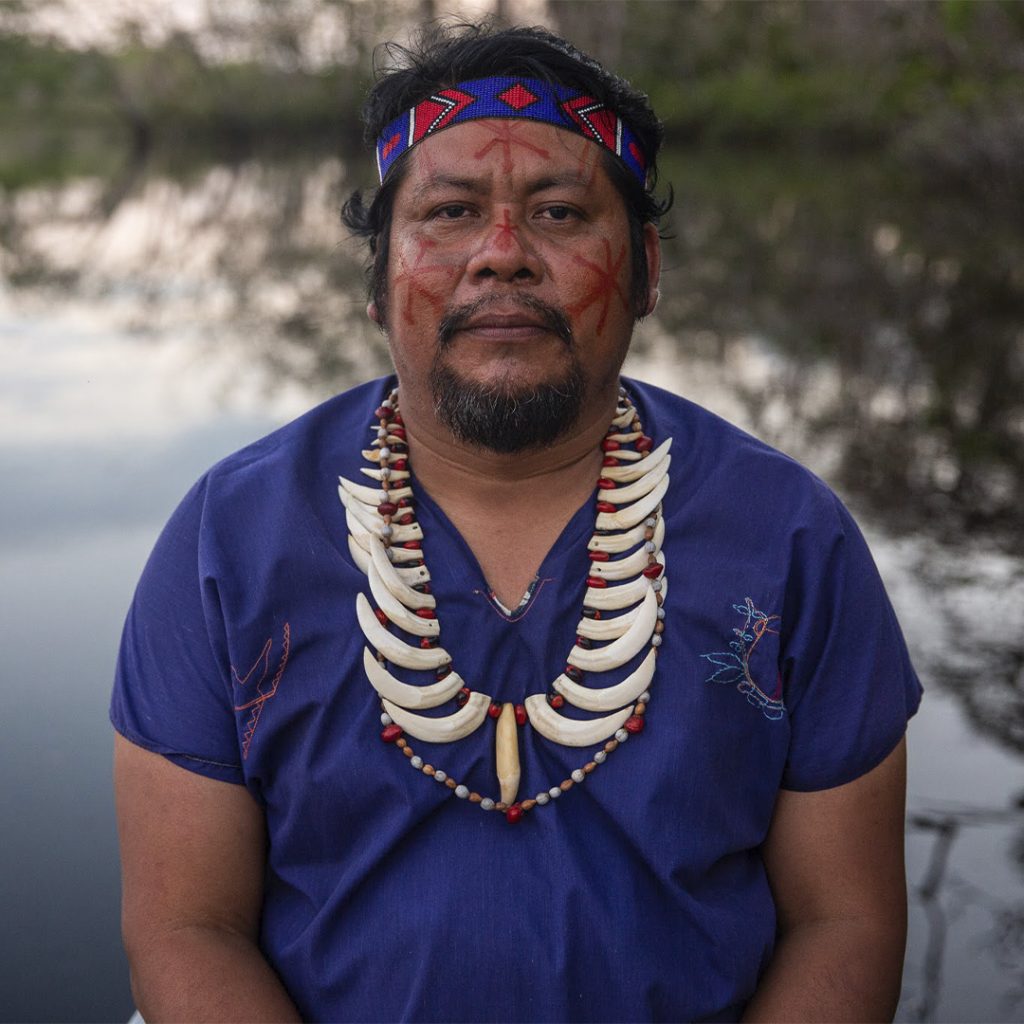
“I believe that one of the first steps towards solidarity is understanding that humans are not the only beings in the world.”
Justino Piaguaje, Siekopai Leader
Our grandparents always said that there are other beings that also educate us, that determine certain rules for us that fundamentally become social norms. Coexistence with other beings is also an act of mutual solidarity. We are providing a healthier, fresher environment, and other human beings need to understand that what they are causing is destruction.
That is the first step: recognizing that we are wrong and, from there, beginning to understand that we are a small part of coexistence with other beings.
Reciprocity Without Discrimination
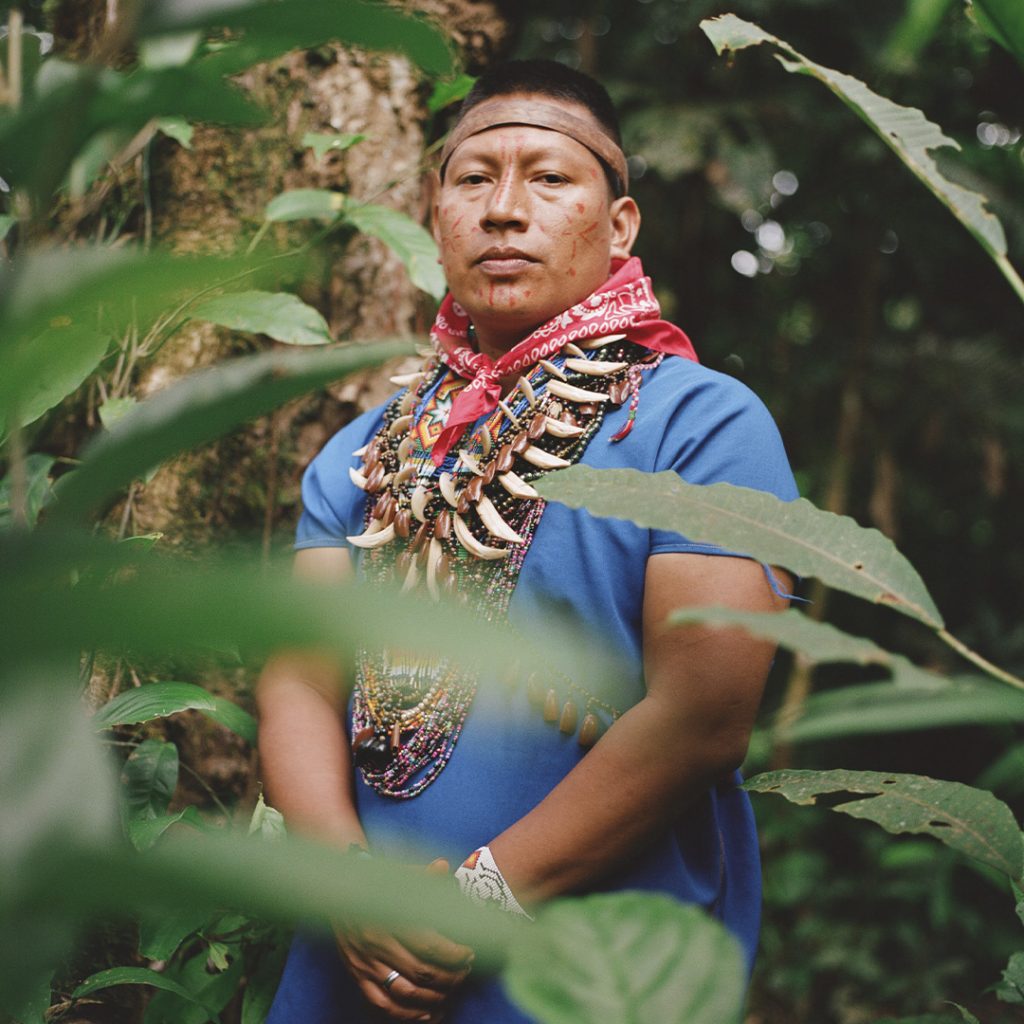
“Solidarity is about understanding reciprocity, regardless of whether we belong to a particular culture or not, because what the struggle seeks is non-discriminatory; it doesn’t have to do with whether we are of the same race or not.”
Alex Lucitante, A’i Cofán Leader
It is about trying to unite that sense of humanity, of brotherhood, so that we can at least continue to maintain harmony in future generations, in the difficult times that are coming. Take a look at what’s happening right now; [the government and industries are] going to come with greater force to try to trample on and erase our rights.
I think that an act of solidarity begins with understanding, with being reciprocal with others, with feeling the great threats together, with feeling how urgent it is to be able to act together to defend life.
Solidarity is Caring for Each Other
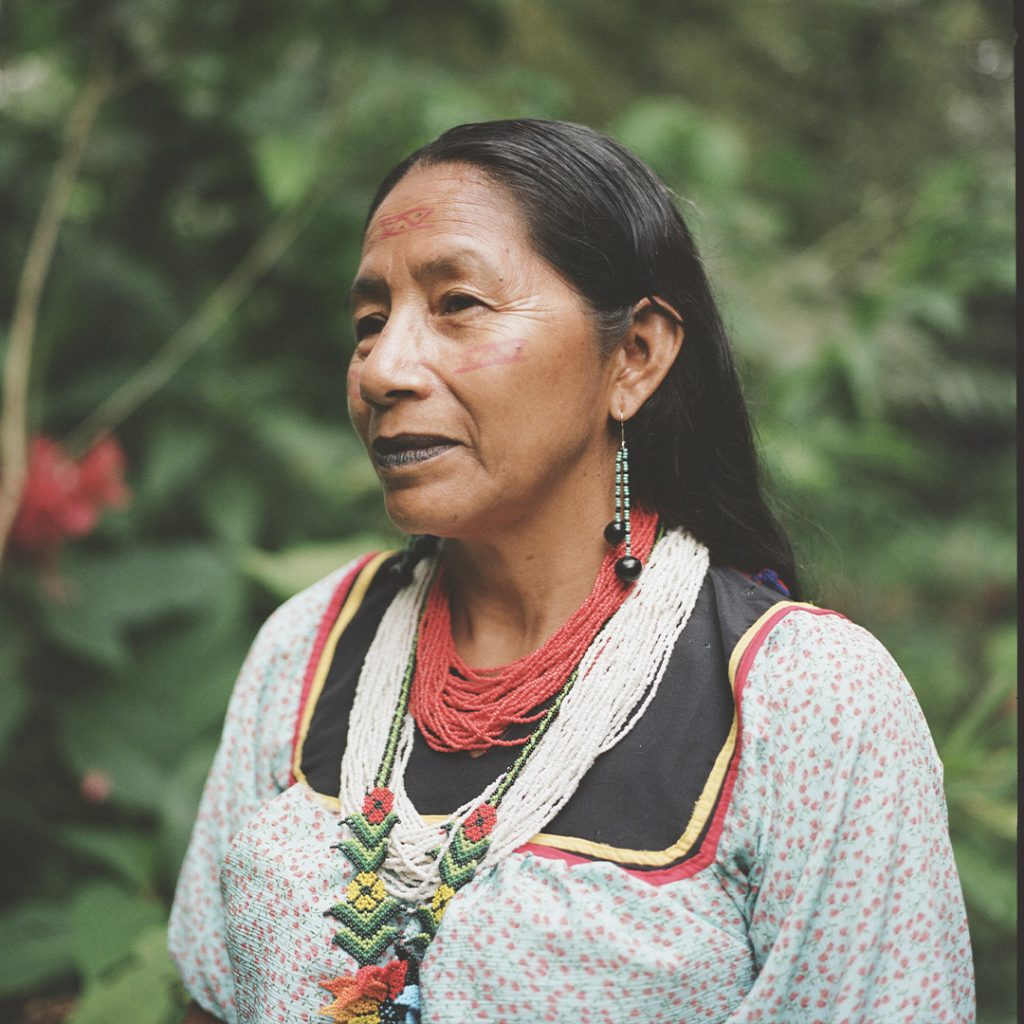
“Everything that happens outside our territories affects us, just as everything that happens to us as Indigenous Peoples affects the world, and we should show solidarity in caring for each other.”
Alicia Salazar, Siona Leader
And we must send a message to the presidents: They must be aware of who they are contracting for extractivism and mining, because they continue to pollute the forest, the water, our home. They cannot continue to pollute with so many chemicals. They must understand that we, the Indigenous Peoples, live off the land and water. That is our lifeblood, and it is for every human being. Every day, less water can be consumed from our rivers. Now we must remain strong and leave a good legacy of care for our forest for future generations.




